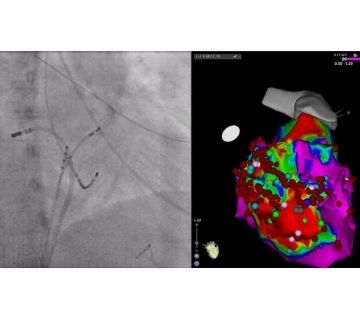
Cardiology is the branch of science which deals with various heart related problems – heart attacks, valve problems, reduced pumping capacity of the heart or heart rhythm related problems. These may happen alone or as a result of some other illness. Due to rapid advancements in the field of cardiology, many subspecialties have developed to deal with some of these problems. One such specialty is – cardiac electrophysiology.
Cardiac electrophysiology deals with heart rhythm and electrocardiography (ECG) related issues. These may present as low heart rate (bradycardia), high heart rate (tachycardia) or abnormal heart rate/ECG abnormalities (arrhythmia). These problems arise due to some abnormality of the electrical system of the heart (conduction system). A patient presenting with any such problem requires a detailed clinical evaluation and focused investigations to arrive at a particular diagnosis. Once the diagnosis is made, the treatment for the same may be initiated only after proper discussion with the patient and/or the relatives. The patient may be started on a particular medication or will need to undergo some procedure.
The common procedures which are more or less specific to the field of cardiac electrophysiology may be of two types – electrophysiological study with/without ablation and device implantation. The patients may require one or more these procedures for a particular problem. Certain types of heart rhythm problems can be permanently cured without requiring any medications after the procedure.